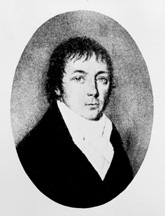William Smith (South Carolina senator) facts for kids
Quick facts for kids
William Smith
|
|
|---|---|
 |
|
| United States Senator from South Carolina |
|
| In office November 29, 1826 – March 4, 1831 |
|
| Preceded by | William Harper |
| Succeeded by | Stephen Miller |
| In office December 4, 1816 – March 4, 1823 |
|
| Preceded by | John Taylor |
| Succeeded by | Robert Hayne |
| Member of the South Carolina Senate from the York district |
|
| In office November 28, 1831 – December 17, 1831 |
|
| Preceded by | Benjamin Person |
| Succeeded by | William Hill |
| Member of the South Carolina House of Representatives from the York district |
|
| In office November 22, 1824 – November 29, 1826 |
|
| Preceded by | Multi-member district |
| Succeeded by | William McGill |
| Personal details | |
| Born | c. 1762 York County, South Carolina |
| Died | June 26, 1840 (aged 77–78) Huntsville, Alabama, U.S. |
| Political party | Democratic-Republican (Before 1825) Democratic (1828–1840) |
William Smith (around 1762 – June 26, 1840) was an important American politician. He came from the state of South Carolina. He served two terms as a Senator in the United States Senate. His first term was from 1816 to 1823. His second term was from 1826 to 1831.
During his life, Smith was one of the most famous political leaders in South Carolina. He had a big rivalry with John C. Calhoun. Smith disagreed with Calhoun's ideas about nationalism. Instead, he strongly supported states' rights. This meant he believed states should have more power than the national government.
Contents
William Smith's Life and Career
Early Years and School
William Smith was born around 1762. He was born in either North Carolina or York County, South Carolina. We do not know much about his early life. We do know about his education.
He first went to a school called Bullock's Creek. There, he became friends with future leaders Andrew Jackson and William H. Crawford. Later, he attended Mt. Zion College in Winnsboro, South Carolina. This was a special school that prepared students for college. Smith once told a friend that he was "resolute and determined." He also said his success came from a promise he made to his wife, Margaret Duff, to live a healthier life.
Starting His Law Career
Smith began his career as a lawyer on January 6, 1784. He was allowed to practice law then. In one interesting case, his client did not show up in court. This client was accused of killing a horse. Smith did not see the man for many years.
Then, he met the man again in the Hall of the House of Representatives. The man, known as "Elchinor" to Smith, was now called John Alexander. He was a Representative for the state of Ohio. Smith made sure that Representative Alexander paid him for his earlier legal help.
Entering Politics
Smith became a member of the South Carolina Senate in the early 1800s. He ended his time there as the Senate President. In 1808, he became a judge. People thought he was a firm but fair judge.
In 1816, Smith was elected as a United States Senator. He won against Charles D. Pringle for the position. Soon after he started, Smith began a political disagreement with John C. Calhoun. This disagreement lasted throughout his political career in South Carolina.
Smith and Calhoun's Rivalry
The disagreement between Calhoun and Smith was about their different political ideas. When Smith joined the Senate, Calhoun believed in a strong national government. Calhoun supported improving roads and other things across the country. He also believed in a "broad construction" of the Constitution. This meant he thought the government had many powers not directly written down.
Smith strongly disagreed with these ideas. He thought they were wrong. Smith gathered a group of allies who supported states' rights. This group included Thomas Cooper, Stephen Decatur Miller, Josiah J. Evans, and David Rogerson Williams.
Calhoun's supporters wanted a few national roads for military reasons. They did not want small local projects. But Smith's group believed that even roads for military use would help other states' economies more than South Carolina's. Many people in South Carolina at that time felt their state was competing with the nation for money and success.
Later Political Life
William Smith was a member of the planter class. This meant he owned several large farms called plantations. He also owned at least 71 enslaved people.
In 1828, seven electors from Georgia chose Smith for vice president. This was instead of Calhoun, who was the main Democratic candidate. He was also a candidate for vice president in 1836. The state of Virginia did not want Richard Mentor Johnson as the Democratic vice presidential candidate. They voted for Martin Van Buren and William Smith. This meant Johnson was one electoral vote short of winning. The Senate then elected Johnson.
In 1832, Smith moved to Louisiana. He had lost his political support in South Carolina. In 1836, he moved to Huntsville, Alabama. He was elected to the Alabama House of Representatives for Madison County. He held this position for the rest of his life.
On March 3, 1837, President Andrew Jackson nominated Smith to the Supreme Court. Five days later, the Senate confirmed Smith's nomination. However, Smith chose not to accept the job. He did not serve on the Supreme Court.

